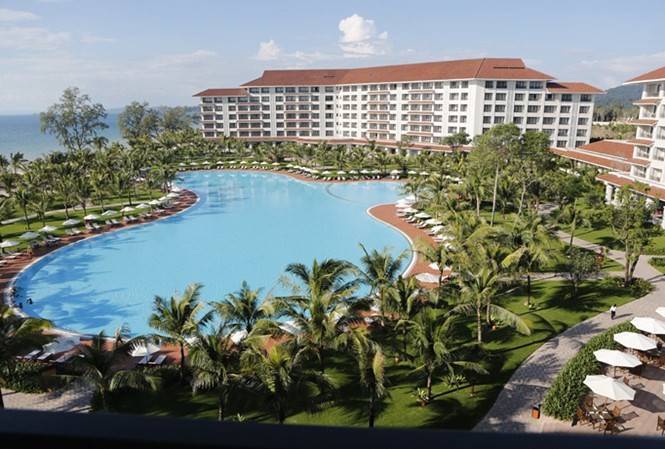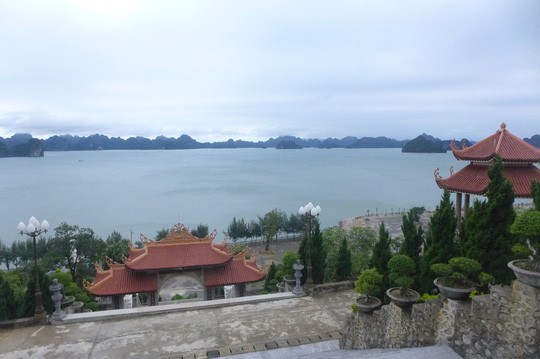(VOVWORLD) - The aim of the draft Law on Special Administrative, Economic Units is to create a legal foundation for the formation, management, and operation of 3 special administrative-economic zones, namely Van Don in Quang Ninh, Phu Quoc in Kien Giang, and Bac Van Phong in Khanh Hoa province. The bill is expected to create breakthroughs in mechanisms and preferential incentives to boost economic development in these zones.
 Vinpearl resort in Phu Quoc Island. (Photo: Hong Vinh/tienphong.vn) Vinpearl resort in Phu Quoc Island. (Photo: Hong Vinh/tienphong.vn) |
The draft Law on Special Administrative, Economic Units made breakthrough in streamlining the administrative apparatus under which the special economic zones’ authorities will apply a one-stop shop mechanism to settle administrative procedures with investors.
The bill also proposes a series of unprecedented land and tax incentives to attract more investment. These include cutting conditional business lines from 243 to 108 and creating more favorable conditions for domestic and foreign investors to mortgage their land or directly receive land use rights.
Foreign investors’ projects will be exempted from import taxes for 7 years after they begin their operation, pay corporate income tax of 10% during the project implementation, enjoy tax exemption for 4 years and 50% reduction of taxable income for 9 additional years.
Deputy Minister of Planning and Investment Nguyen Van Trung said: “The draft law aims to develop an administration model in which upholds individual responsibility, increases oversight by state agencies, the community, the people, and enterprises. It proposes 10 major policies that are fundamental to ensuring competitiveness and more outstanding than Vietnam’s current regulations and that of other countries. The proposed policies must be transparent and everyone must have the right to exercise oversight.”
 Van Don is one of 3 future special economic zones. (Photo: The Dung/nld.com.vn) Van Don is one of 3 future special economic zones. (Photo: The Dung/nld.com.vn) |
Once the special mechanism takes effect, it is hoped that Van Don, Bac Van Phong, and Phu Quoc will see a strong investment flow. Van Dong, for example, can generate about 4 billion USD from taxation, fees, and land-based income.
Similarly, Bac Van Phong will contribute about 2.2 billion USD a year to the state budget and billions of dollars a year to local GDP growth.
The potential of Phu Quoc special economic zone is expected to attract more than 3 billion USD to the state budget, while enterprises will create added values worth 19 billion USD from now until 2030. More jobs will be generated and per capita income will increase.
But economist Nguyen Minh Phong says preferential taxes and land lease prices aren’t enough to attract investors. The key will be a strong mechanism.
“A special economic zone is not just an industrial zone. It is a miniature nation with special administrative institutions, where all forms of business activities are permitted to develop to serve local residents. To ensure its success, it must maintain its policies, trust, and consistency, especially for long-term investment projects. In the initial period, it’s necessary to outline extremely specialized incentives to attract key investors in infrastructure with which to lure other investors,” Phong said.
The construction of special economic zones will create new breakthroughs in economic growth for the localities that deploy the model and for the entire nation.